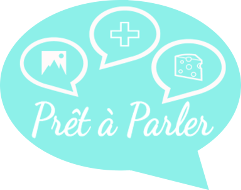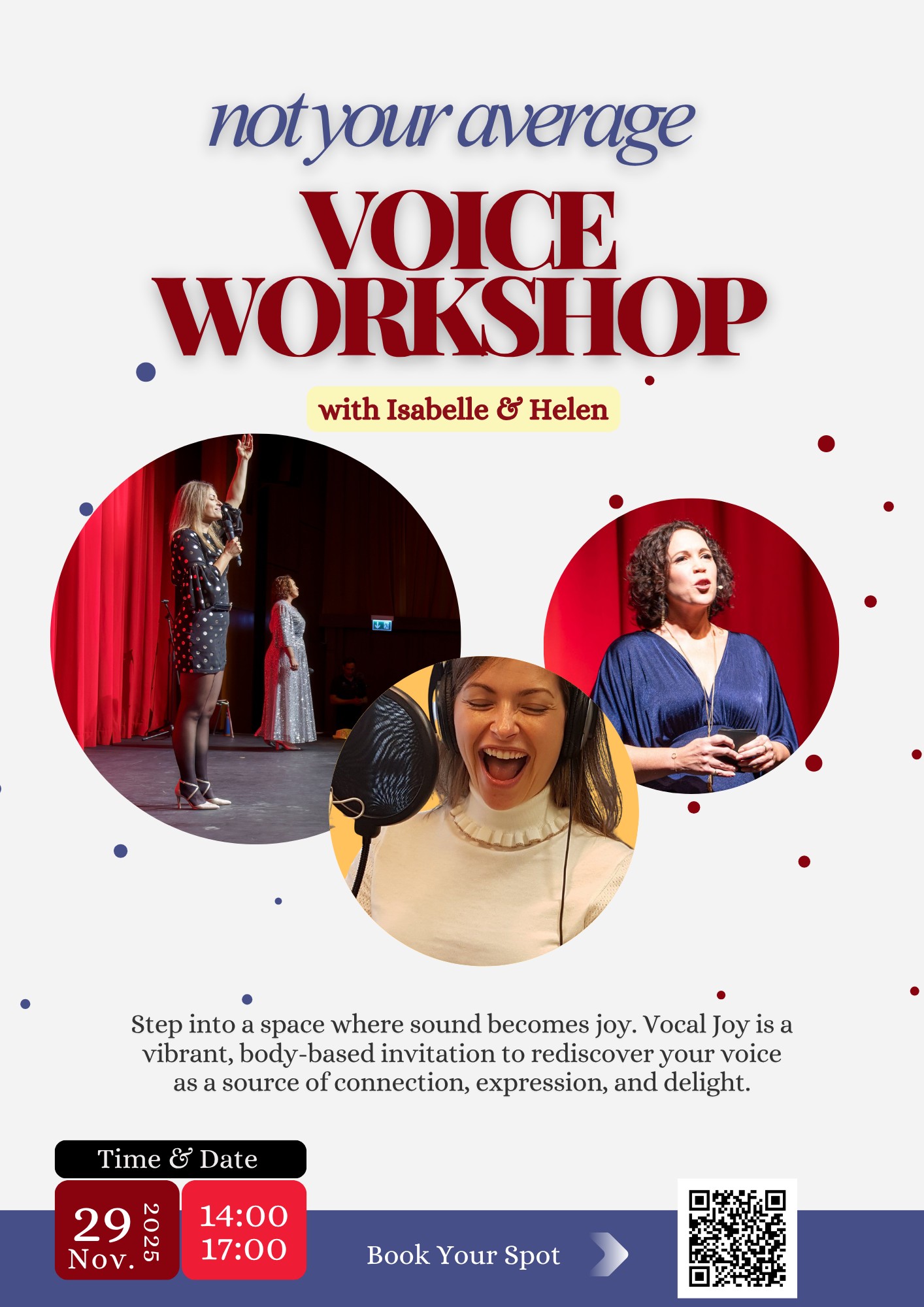Feeling nervous before an exam is completely normal — whether you’re taking the FIDE exam, preparing for a job interview, or meeting new people at a networking event. Even the most confident professionals experience butterflies in their stomach and shaky hands when they face a high-stakes situation.
Yet some people manage to stay composed while others freeze or panic.
Why is that — and more importantly, how can you learn to better manage stress when it matters most?
To answer this, we turned to confidence coach Helen von Dadelszen, founder of Present Potential, who specializes in helping professionals build confidence and turn nerves into positive energy. Helen has spent decades on stage, in the performing arts world, and supporting international professionals, and she knows the science behind stress — and how to work with it instead of against it.
Below are the most efficient techniques she recommends to feel calmer, confident, and more in control during an exam.
1. Remember: Stress Is Normal — and Useful
Stress is a natural biological response, not a sign that you’re failing. It is your body’s natural reaction to something important and unknown. Our bodies are designed to trigger stress when we face challenges, which helps sharpen focus, boost alertness, and prepare us to take action. This response releases hormones like cortisol and adrenaline that give us extra energy and motivation to deal with what’s in front of us.
In the right amounts, stress can be useful: it can help us learn, perform, solve problems, and adapt to new situations. The goal isn’t to eliminate stress altogether, but to understand it and manage it so that it serves us rather than overwhelms us. When we shift our mindset from “stress is bad” to “stress can help me rise to the occasion,” we become more resilient and better equipped to handle life’s ups and downs.
The physical sensations of stress — the pounding heart, shaking voice, sweaty palms — are the same physiological reactions as excitement. With the right mindset, you can reinterpret them:
“I’m nervous because this matters.”
“My heart is racing because I’m ready.”
“I’m not scared — I’m excited.”
This simple mental switch immediately reduces panic and boosts motivation.
2. Use Your Breath to Stabilize Your Body
When your nervous system enters a fight-or-flight state, your breathing becomes fast and shallow because your body thinks it needs to act quickly rather than speak calmly. This reduced airflow limits oxygen to the brain, which can make thoughts race, concentration drop, and forming clear sentences feel difficult.
The powerful thing is that the breath works both ways. Just as stress can change your breathing, intentional breathing can change your stress response. Slow, deep breaths signal safety to the brain, helping the heart rate slow down, muscles relax, and the voice become steady again. By focusing on your breath, you’re not only calming your mind, you’re stabilizing your whole body.
Helen recommends box breathing (also called 4×4 breathing):
- Breathe in for 4 counts
- Hold for 4 counts
- Breathe out for 4 counts
- Hold for 4 counts
Repeat 3 to 4 times before entering the exam room.
This reduces your heart rate and restores clear thinking.
3. Adopt a Power Pose
Your posture influences your emotions. Adopting a power pose works because the body and mind are deeply connected. When you shrink — hunched shoulders, crossed arms, eyes down — your body signals insecurity to the brain, which can increase anxiety and self-doubt. But when you expand your posture, you send the opposite message: “I am capable and safe.”
A quick two-minute confidence boost:
- Stand tall
- Hands on hips
- Chest open
- Chin slightly raised
- Look ahead, not at the floor
Follow it with calm breathing.
You’ll walk into the exam room feeling more grounded, confident, and ready.

4. Reprogram Your Internal Soundtrack
Our inner thoughts shape how our body feels and performs, especially under pressure. When your mental soundtrack is full of negativity, the brain interprets those messages as danger, triggering anxiety and reducing your ability to focus, remember, and speak confidently.
Before an exam, your mental soundtrack may sound like:
- “I’m going to fail.”
- “My French isn’t good enough.”
- “Everyone else is better than me.”
These thoughts increase anxiety — and reduce performance.
The good news is that they can be rewritten. Replacing negative predictions with realistic, empowering statements helps calm the nervous system and build confidence from the inside out.
Negative soundtrack | New empowering soundtrack |
I can’t speak French. | I’m learning to speak French. |
I’m not good enough. | I’m prepared and I’ll do my best. |
I’ll never pass. | I have everything I need to succeed. |
Even simply adding … yet can transform the mindset:
→ “I can’t speak French… yet.”
5. Ground Yourself When Panic Hits Mid-Exam
Grounding techniques are strategies designed to bring your attention back to the present moment, especially when anxiety, stress, or panic starts to take over. The goal is to help your mind and body “anchor” in the here and now, rather than spiraling into worry, fear, or racing thoughts.
Even with good preparation, there may be a moment when you freeze — maybe you don’t understand a word, a topic feels unfamiliar, or your mind goes blank.
When that happens, try grounding:
- Touch the table gently
- Feel your feet inside your shoes
- Take one calm breath through your nose
This signals to the brain that you are safe, not in danger — which restores clarity quickly.
And remember: the examiner wants you to succeed. You can always ask:
- “Excusez-moi, pouvez-vous répéter ?”
- “Pourriez-vous parler plus lentement, s’il vous plaît ?”
Asking for clarification is not a failure — it is proof of communication skills.
Recap — 5 Tools to Reduce Stress Fast
Situation | What to do |
|---|---|
Before entering the exam | Box breathing + power pose |
During the exam | Grounding + positive inner soundtrack |
Long-term confidence building | Rewrite mental self-talk and practice calm breathing regularly |
Stress doesn’t disappear — but you can learn to steer it.
With the right tools, it becomes fuel rather than sabotage.
Want More Confidence Tools?
- Visit Helen's website: https://academy.presentpotential.ch/
- Try out her warm-up routine (freebie): https://academy.presentpotential.ch/Warm-Up
- Watch her masterclass on how to manage your nerves (freebie): https://academy.presentpotential.ch/nerves-masterclass-registration
- Contact Helen and have a chat: https://calendly.com/presentpotential/book-call
This article was inspired by our interview with Helen von Dadelszen on The Empowered Learners podcast.
🎧 You can watch/listen to the full conversation on Youtube with subtitles.
Join Our Workshop: Vocal Joy
If you enjoyed these tips and want to explore more ways to boost confidence, manage nerves, and have fun with your voice, don’t miss our “Vocal Joy” workshop with Isabelle Nicolas and Helen von Dadelszen on 29 November at 14:00.
Isabelle
As a native Québécoise, born to a Franco-Belgian family, now living in Nyon with her two children, Isabelle is no stranger to the expat reality! Trained as a professional opera singer, her passion for arts and languages led her to become an ambassador of the French language & francophone culture, i.e. a French Teacher!
She founded Prêt à Parler in January 2015. Since then she's been hard at work helping English-speaking learners from the international community of Suisse romande make French part of their everyday life! Prêt à Parler's mission is based on what Isabelle does best: helping busy professionals and parents improve their French language skills by providing a high quality, eco-friendly, fun, no-nonsense approach to learning French online!








0 comments